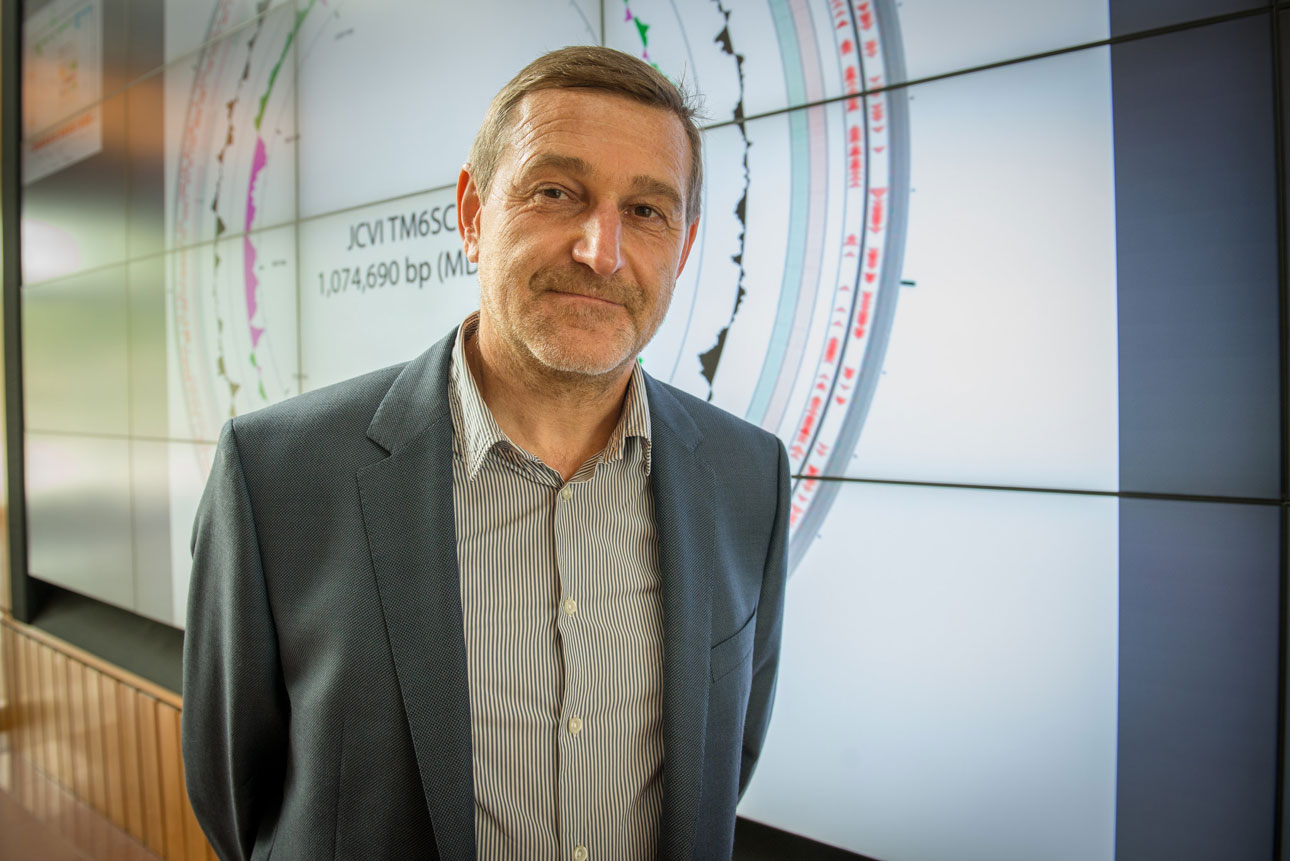
The International Society of Computational Biology (ISCB) has announced the winners of its top four awards for 2017, and leading the list is UC San Diego computer-science professor Pavel Pevzner. The Accomplishments by a Senior Scientist Award honors Pevzner's almost 30 years in the field of bioinformatics, and in particular his significant contributions to research and education.

Computer Science in the Jacobs School of Engineering.
Pevzner will accept his award at the 25th Intelligent Systems for Molecular Biology and 16th European Conference on Computational Biology (ISMB/ECCB 2017), which are scheduled for July 21-25 in Prague, Czech Republic. He will also deliver a keynote address at the joint conference.
The Bioinformatics Lab at UC San Diego was established by Pevzner when he joined UC San Diego’s Computer Science and Engineering (CSE) faculty in 2000. Today, the lab works primarily in research areas including genome rearrangements, genome sequencing, computational proteomics, and antibiotics discovery.
"There are few sub-fields in bioinformatics where Pevzner has not made a seminal contribution," noted ISCB in announcing the award. "His work is guided by applying combinatorial and algorithmic ideas to solving problems in bioinformatics, most notably in genome rearrangements, fragment assembly, and algorithmic mass spectrometry."
Pevzner holds the Ronald R. Taylor Chair in the Jacobs School of Engineering. He is also a Howard Hughes Medical Institute investigator, and he directs the NIH-funded Center for Computational Mass Spectrometry (CCMS). He has also played a pivotal role in the establishment and expansion of an interdisciplinary Graduate Program in Bioinformatics and Systems Biology at UC San Diego.

"Professor Pevzner's algorithmic ideas have been incorporated into many of the tools used in bioinformatics," said CSE Chair Dean Tullsen. "He a world leader in algorithmic genomics and proteomics, but he is also a pioneering influence on bioinformatics education through his textbooks and massive open online courses."
Those efforts include the creation of many online courses in bioinformatics that have reached hundreds of thousands of learners around the world via the Coursera online platform. The courses target anyone from beginners ("Biology Meets Programming: Bioinformatics for Beginners"), to a seven-course Specialization in bioinformatics that has been honored as one of the top-50 MOOCs to date. Pevzner also co-taught a series of six courses specializing in Data Structures and Algorithms, which he co-developed with collaborators from CSE and the Higher School of Economics in Russia.
ISCB took note of Pevzner's impact at UC San Diego and HHMI, and as a founding member and former chair of the steering committee of the International Conference on Research in Computational Biology (RECOMB). He is a past member of the society's board of directors, and also serves on several editorial boards.
Pevzner earned his Ph.D. in Mathematics and Physics from the Moscow Institute of Physics and Technology. Starting in 1990 he did a two-year postdoc at the University of Southern California in the lab of Michael Waterman. In 1992 Pevzner joined the faculty at Pennsylvania State University, before returning to USC in 2005 as a professor of mathematics, computer science and molecular biology.
Since 2000, he has been on the CSE faculty at UC San Diego, and has been influential in the department's growing focus on computational biology and bioinformatics. In 2011 Pevzner did a sabbatical in his native Russia and founded the Center for Algorithmic Biotechnology at St. Petersburg State University.
Related Links
Pavel Pevzner Website
International Scoiety for Computational Biology
ISMB/ECCB 2017
Center for Computational Mass Spectrometry
Computer Science and Engineering

